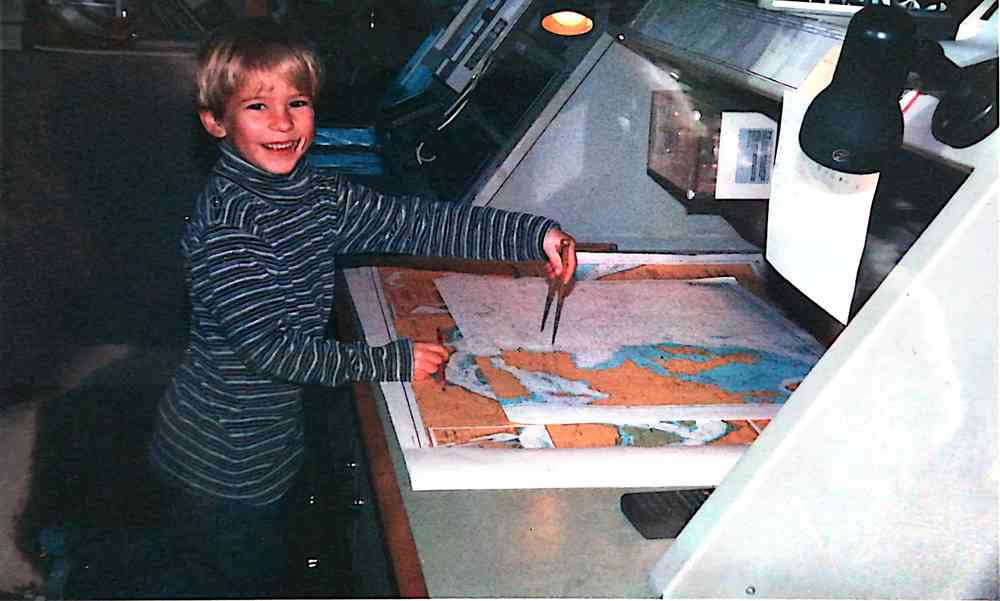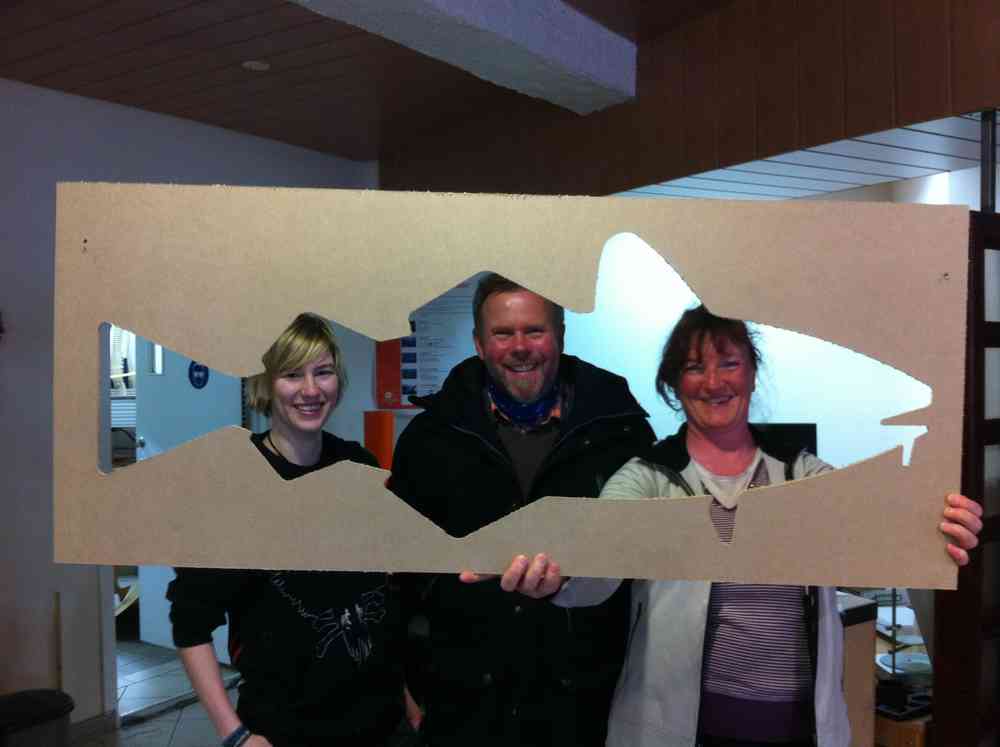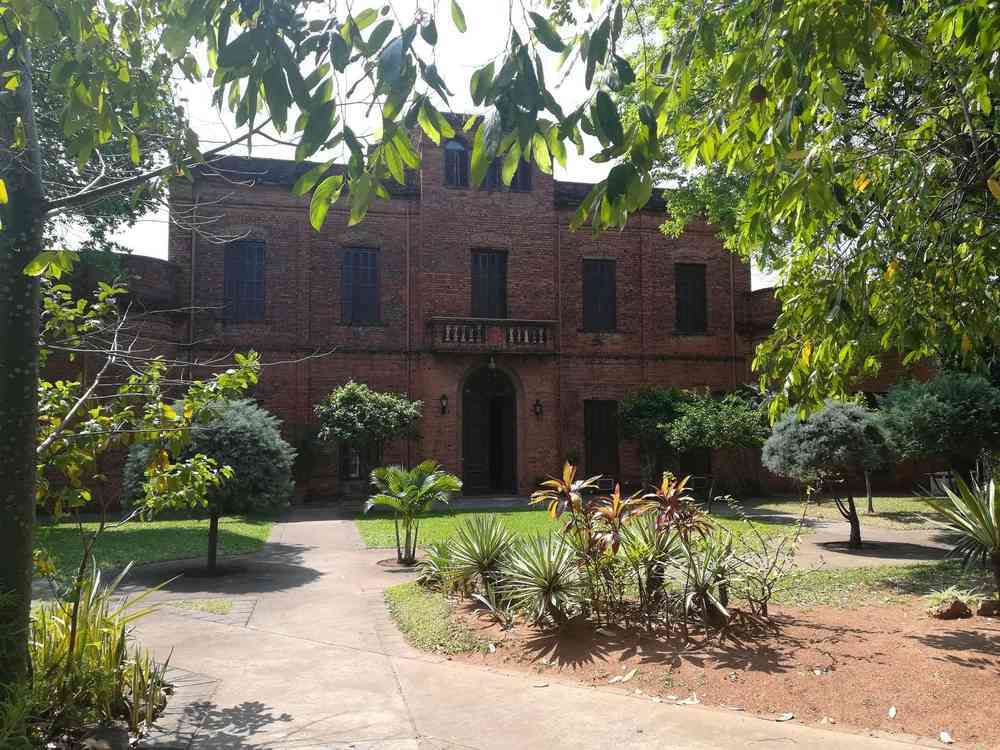Early years
On a wednesday in 1993, in the historical city of Bruges (Belgium), I was born. My parents, both passionate by the sea, took me along with them from the very start. My dad, a captain on larger
ships (cargo, tankers...) would come home from his work trips and tell about the new parts of the world that he discovered.
My mom, staying at home with the kids is a passionate hobby sailor and would pinpoint every new location on a map. Growing up in that family, sailing and water were a part of our daily life.
In my secondary school years I decided to go study humanities, because my mathematics wasn't good enough.
 As a kid on the ship of my father
As a kid on the ship of my father
Go to top
Passions
After my 18th I developed two big passions: traveling and FabLabs/STEM-education.
As told, both of my parents were quite adventurous, but we never really traveled far. When I got the chance to become an exchange student, I took it! I ended up in Iceland where I felt immediately at home. As travelers will know you can get a culture shock but you can also experience emotional and personal changes. Mine were so bad that after some time I didn't call Belgium my home anymore. After returning from my Iceland adventures, I grew very restless and the only thing that could ease me was more traveling and FabLabs.
During my time in Iceland I both volunteered and worked in the FabLab and got a chance to enroll into the FabAcademy 2013 cycle.
 In Iceland I got the chance to work together with well known Icelandic designers.
In Iceland I got the chance to work together with well known Icelandic designers.
As I realized that FabLabs became the core of me as a person, I decided to go further into it and attend a design school. 3 years after enrolling I graduated as a Industrial Product Designer. Finally free from anything that kept me in Belgium during the studies, I decided to move to Paraguay for 6 months to teach STEM education in the Benjamin Franklin Science Corner. In Belgium, my former internship company was patiently waiting for my return so that they could accept me as one of their employees.
 The historical building where I worked in Paraguay
The historical building where I worked in Paraguay
Go to top
Education and passion
- Secondary education: Humanities (until 2011)
- Exchange program: Framhaldskolin I Vestmannaeyjum, Iceland: humanities and FabLab (2011 - 2012)
- Exchange program: FabAcademy 2013, Vestmannaeyjar, Iceland
- Higher education (PBA): Industrial product design (2014-2017)
- Foreign project: Volunteer at Benjamin Franklin Science Corner, Asuncion, Paraguay (2017 - 2018)
Today
De Creatieve STEM
Today I work at the Creatieve STEM, a FabLab in Drongen, Belgium, that develops educational tools for STEM-classes. Most of the tools that are developed are to be used with kids with age ranging 5 to 99 years old. The aim of Ingegno is twofold. On the one hand they have a full range of activities for children aged 5 to 14 and on the other hand they have a train the trainer program. Also, they develop specific course material for kids or adults on demand over a wide range of scientific topics. Electronics and physical computing are recurring topics and great effort in being put in developing a methodology that can be used with young children an non-expert teachers/trainers. Physical computing covers the design and realization of interactive objects and installations and allows individuals to develop concrete, tangible products of the real world that arise from the learners’ imagination. This way, constructionist learning is raised to a level that enables the maker/pupil to gain haptic experience and thereby concretizes the virtual: physical computing means to creatively design tangible interactive objects or systems using programmable hardware This design brief will focus on researching the obstacles encountered when breadboarding prototyping with children. There are different suitable tools for physical computing, we specifically chose for arduino and blockly.
Boatbuilding and restoration
Of course life ain't all about work, so in my free time I build en renovate (wooden) boats. At the moment I try to focus on wooden boats as I already have a lot of knowledge about
polyester boats. As mentioned before, both of my parents are sea-fare adventurers. It's only logical that I got triggered at home and in school to find out more about this. Where
FabLabs became my first passion that ran out of hand, boats is the second one that is about to run out of hand. Not counting the traveling.
As an extra, because I believe in life long learning, I applied to the Boat Building Academy and got accepted for the summer of 2019! Hooray!
 Working on my wooden boat
Working on my wooden boat
